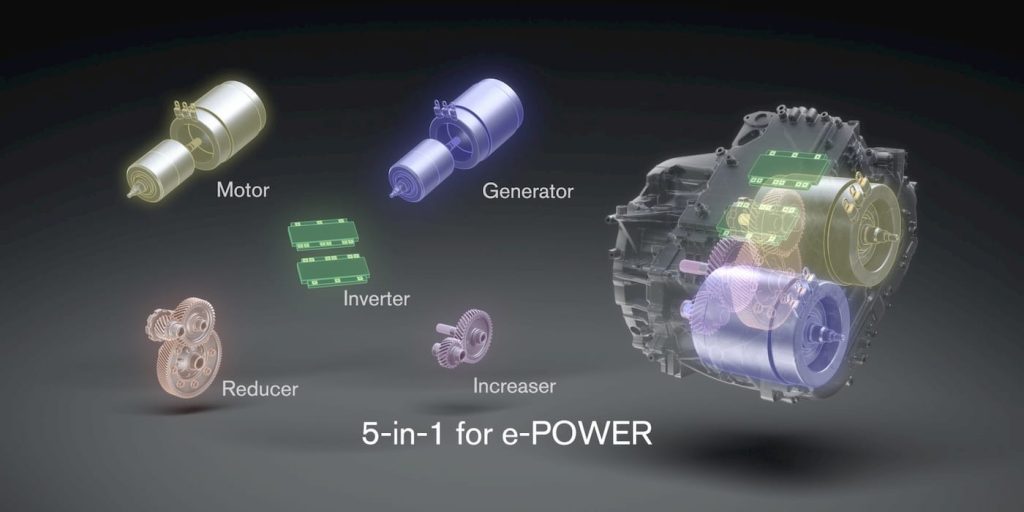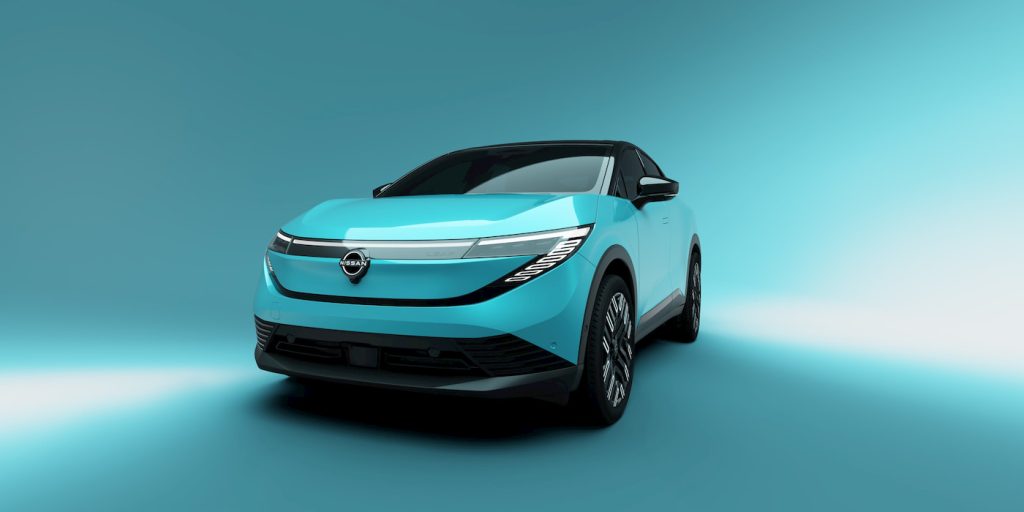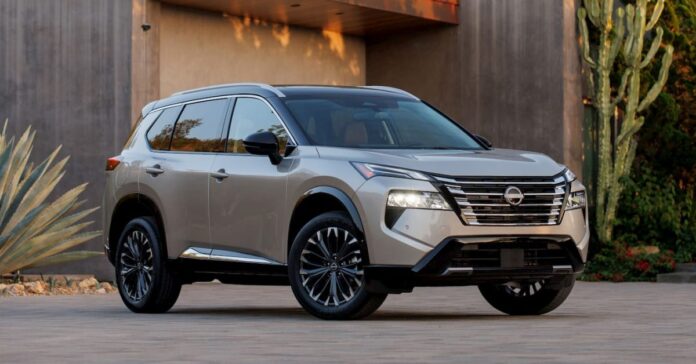The Japanese automaker’s comeback plan hinges on its upgraded e-Power system, which will be crucial in keeping pace with Toyota and Honda. Nissan promises its third-generation hybrid EV tech boasts more range at a lower cost, but there’s one major issue.
Nissan bets big on upgraded hybrid EV tech
Nissan is struggling to stay alive after falling behind early in the shift to electrification. With debt piling up, sales slumping, and a wave of new competition, Nissan is sounding the alarm.
Earlier this month, the company introduced its new recovery plan, “Re:Nissan,” which includes cutting 20,000 jobs, or around 15% of its global workforce, by 2027. It’s also closing several factories and scrapping plans to build a new EV battery plant in Japan to cut costs.
The efforts come as part of the automaker’s urgent turnaround strategy. After showcasing its upgraded e-Power system on Sunday, Nissan said the new hybrid tech will be more like driving an EV.
“E-Power is different because it is derived from EV technology and drives like an EV,” Nissan’s chief technology officer, Eiichi Akashi, explained at the event (via Auto News).

According to Nissan, the new drivetrain is cheaper, quieter, and more efficient. It was also designed with the US, Nissan’s most important market, in mind. According to Nissan, the new setup boosts fuel economy on the highway by 15% and in the city by 9%.
The upgraded system will debut in the upcoming fourth-gen Nissan Rogue, its bestselling vehicle in the US, in FY2027.

Before it arrives, Nissan will launch the upgraded drivetrain in other global markets, including Europe and Japan. Later this year, the new Qashqai will debut in Europe with its third-gen e-Power drivetrain, followed by Japan in 2026.
According to Akashi, the new hybrid EV system will be key to Nissan’s comeback plan in the US, and the Rogue is the perfect vehicle to showcase it. However, there’s one major flaw.

The new powertrain setup is more “EV-like” as the gas engine acts as a generator to power the vehicle’s battery and wheels.
Nissan said the new 5-in-1 system, which combines the motor, inverter, generator, reducer, and increaser, cuts costs and is more efficient. Specifics were not revealed, but Shunichi Inamijima, corporate executive for powertrain and EV technologies, said it’s an over 10% improvement compared to Nissan’s second-generation e-Power system.

Although it sounds promising, the new tech will cost more than Nissan expected. When it initially introduced the drive unit in 2023, Nissan said it would enable it to offer hybrids at the same price as its internal-combustion engine (ICE) vehicles.
Based on Inamijima’s comments, that will no longer be the case. He said the new e-Power system will still face a price gap with cheaper gas-powered vehicles.

“We still want to realize cost parity as soon as possible,” Inamijima said. When asked when the new timeline would be, he responded, “No comment.”
Before the fourth-gen Rogue arrives in the US, Nissan will launch the upgraded LEAF EV later this year. It will be one of ten new Nissan or Infiniti models set to arrive by 2027.
In Europe, Nissan will launch the next-gen LEAF later this year, followed by the new Micra EV and Qashqai electric crossover. The new Juke EV will join the lineup in 2026.
Electrek’s Take
Nissan’s big bet already looks underwhelming. Not only will it face lower-priced gas-powered vehicles, but by 2027, an influx of new EVs (which will also likely be cheaper) will be available.
While Nissan takes another swing at hybrids, it could already be setting itself up for failure. Fully electric cars are more efficient, and as new battery and other electric vehicle technologies advance, they will only become increasingly affordable.
A recent report from Japan’s MainiChi, hinted at a potential partnership with Toyota. According to the report, a Toyota executive reached out to Nissan about a potential partnership that would involve Toyota acting as Nissan’s “backer” while it restructures.
Will Nissan’s new hybrid EV drivetrain spark a comeback? Or will it be too little, too late? Let us know your thoughts in the comments below.
Source: Auto News


